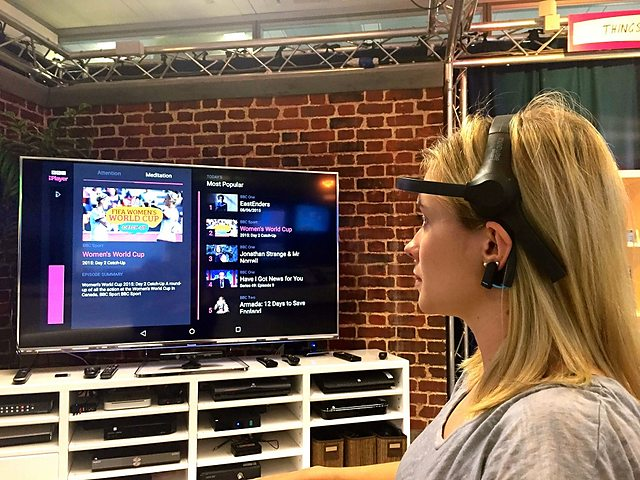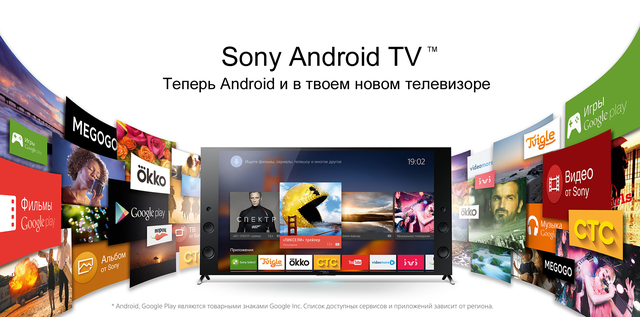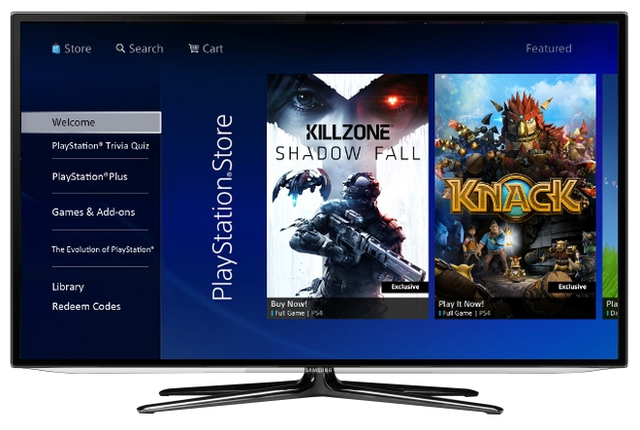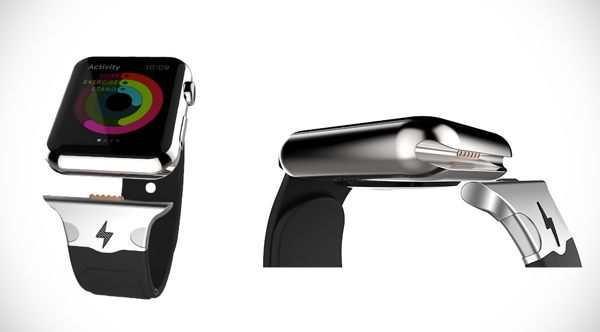On hands-on telepathy, cloning iOS, improved batteries, and cloud gaming with PlayStation.

Everything flows, everything changes, and technology is no exception. Some devices are replaced by others, and they are replaced by others. It is not a fact that modern children will cope with a wired telephone with a number plate or will understand, guess why a punch was needed on buses, and believe that not so long ago there were coin changers in the subway. But if you think about it, not so many years have passed since then.
However, technical devices do not necessarily disappear right away. Much more often one class of devices gradually evolves into another, and it is not always even possible to draw the line where one ends and another begins. Can the first models iPhone be called smartphones, where there was not even full-fledged multitasking? Should we consider simple S40-based devices as smartphones, where you can also install additional programs? Where is the line between a cheap tablet and a color-screen reader? What counts as a camera phone with optical zoom and what is a camera with call support?
TVs and mind reading
The TV market is going through hard times right now. People have a lot of other ways to get information and watch films. And there is practically no incentive to update televisions now.
Of course, manufacturers are not very happy with this state of affairs, and they are honestly trying to come up with something new and interesting. The initial focus was on increasing the screen diagonal and decreasing the thickness. And for a while, this approach really worked; many wanted to change the bulky 'box' for a modern plasma panel. Then there was an attempt to turn the TV into something more by adding the 'smart' prefix to it. And this bet has obviously not played out – firstly, not so many people were interested in 'smart' functions, most preferred to use TVs the old fashioned way, and watch videos from YouTube and movies downloaded from torrents on a computer. And secondly, cheap sticks with Android inside will easily turn any modern TV into a 'smart' one, while their cost is simply incomparable with the cost of a new TV.
However, it doesn't have to be about Android. A full version Windows may well be installed on the stick. Such a stick was recently presented by the company Archos.

According to its characteristics, the stick looks more like a full-fledged smartphone, even without a screen. It has a quad-core processor Intel Bay Trail Atom Z3735F, 2GB of RAM and 32GB of internal memory, and a graphics accelerator Intel HD. The cost of the device, however, is also rather big – $ 99.
Link to news
What to do now and does this market have any prospects at all? Will the familiar TVs turn into some new class of devices or will they practically die out in a few decades, repeating the fate of coin changers and rotary dial phones? Each manufacturer has its own answer to this question.
For example, the BBC, together with the company This Place, are seriously engaged in the development of a television controlled by the power of thought. Instead of a remote control, the prototype uses a special headset in the form of a hoop, which must be worn over the head.
The 'telepathic' method of channel switching is already working, but this control is not particularly convenient. While the system works as follows – the TV shows the user descriptions of popular programs, allotting ten seconds for each, and the headset measures the activity of the brain, determining how much the user is interested in the proposed channel. On the left side of the screen, there is a scale showing the degree of concentration of the user on this program. As soon as it is 100% full, the channel will switch.
Let me remind you once again that this is only a prototype so far; in the commercial version, the control will be clearly redesigned. The main thing is that the principle itself is quite working.

Link to news
Sony continues to advocate its 'four-screen concept', where the TV is considered only part of the ecosystem. The company's latest smart TVs run on Android and allow you to use your main Google account. This makes it possible to play games you have already purchased on the big screen. True, there may be problems with control now, because not all toys are adapted to use the gamepad. In addition, the TV supports voice control and prompts, much like Google Now. If you have no desire to shout at your TV, but you are too lazy to reach for the remote control, you can use your smartphone, for which there is a special proprietary application.

Link to news
To be honest, all these possibilities seem far-fetched to me and not particularly interesting. As a bonus, all this may be good, but I’m unlikely to focus on these functions when choosing a TV.
But the PlayStation Now service looks much more interesting. Let me remind you that it allows you to run games in the cloud, broadcasting only a picture to the TV screen. So far, the service works in demo mode and is available only for US residents, but even now it has about a hundred games from the PlayStation 3. The cost of a 3-month subscription will cost $ 45.

Interestingly, buying a TV from Sony is optional to access the service. At least, it is also supported by some Samsung models, and the list of compatible devices may expand further in the future. Apparently Sony is looking at PlayStation Now primarily as a lucrative service rather than a competitive advantage for their TVs.
Link to news
Samsung continues to experiment with their TVs, even if sometimes they are very tempted to say about such experiments “they are mad with fat.” For example, a couple of weeks ago, the company offered to install television panels on trucks, demonstrating the situation on the road to the cars driving behind him.
[iframe url = '// www.youtube.com/embed/ZetSRWchM4w' width = '640 ″ height =' 360 ″ scrolling = 'no' frameborder = '0 ″ marginheight =' 0 ']
Of course, any idea that can save lives certainly makes sense. But somehow it's all … handicraft, or what?
Link to news
Mobile technology and battery life
It is very difficult to predict in advance where this or that type of technology will lead evolution (even if this word is hardly applicable to technology). As soon as it begins to seem that the top of perfection has already been reached, something fundamentally new appears in the world, which turns everything upside down and provides the work of company engineers for many years to come.
For example, Martin Cooper, the inventor of the world's first mobile phone, believes that application stores are gradually becoming obsolete, that this is an evolutionary dead end, and the further development of mobile phones will take a different path. According to him, there is nothing good in the fact that users have to delve into thousands of different programs, looking for something useful. It would be much more logical for the phone to analyze the user's needs on its own and fulfill them without unnecessary delays.
[iframe url = '// www.youtube.com/embed/C6gNeKjC9Cc' width = '640 ″ height =' 360 ″ scrolling = 'no' frameborder = '0 ″ marginheight =' 0 ']
You will say that this is just a fantasy of an elderly person, which has nothing to do with reality? Well, on April 3, 1973, he already managed to prove that the ideas of the possible and the impossible among the bulk of people are very erroneous. It was on that day that Cooper made the first call from the world's first mobile phone. По его словам, глава исследовательского центра AT&T, который находился на том конце провода, при этом известии стиснул зубы до явно различимого скрежета.

Link to news
Batteries have been a major problem in mobile devices for a long time. Who knows what engineers might have come up with if the battery life had not initially forced them into a rigid framework.
 |
Offtopic: live to the socket |
Alas, many users refuse to buy even the current devices, which can do a lot of different things, but only require constant charging. What is the practical use of drones that can stay in the air for just a dozen minutes? Why do we need 'smart' watch functions, if this very watch can sit down at the most inopportune moment?
Rumors about the next version Apple Watch have been circulating on the network for quite some time. For example, judging by the latest published patent, the new version of the watch will have special sensors that can not only increase the accuracy of determining the heart rate, but also prevent carpal tunnel syndrome.

And all this is great, but only while large companies are inventing all sorts of new sensors and unprecedented functions, the manufacturers of accessories have to work on the battery life. For example, such a strap called Reserve Strap will increase the battery life of the watch by 167%. It will go on sale this fall.


Link to news
However, there are some progress in this matter. For example, Samsung engineers were able to improve existing batteries by increasing their capacity by 1.5-1.8 times while maintaining the old dimensions. This was achieved by changing the materials used to manufacture the cathode.
Of course, this will not completely remove the problem with battery life, but perhaps now it will become a little less acute.

Link to news
Evolution sometimes takes on strange forms. Especially when it comes to enterprising Chinese companies cloning anything and everything.
Clones iPhone running on Android have been created in China for many years. And, apparently, all these years there is a very considerable demand for them, and by no means in the Celestial Empire alone. It seems that the cloning process has recently reached a fundamentally new level – for the first time, smartphones have been discovered that work not on Android, but on iOS.
Anyway, according to ubergizmo, several similar smartphones have recently been found in one of the stores in China. Despite the fact that from the original components there were only headphones and chargers, such 'clones' worked on iOS 8.
Link to news

